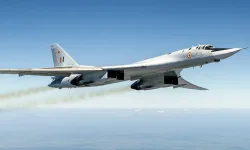- Views: 2K
- Replies: 12

Amidst ongoing discussions regarding potential U.S. sales of F-16 and F-35 fighter jets to India, a Russian think tank has voiced concerns about possible vulnerabilities in the avionics systems of these aircraft.
The Centre for Analysis of World Arms Trade (CAWAT), an independent research organization based in Moscow, published an article on the Russian defence portal Oborona.ru cautioning that these aircraft might contain intentionally inserted "backdoors" within their electronic systems.
According to CAWAT's director, Igor Korotchenko, these backdoors could be exploited remotely to disable critical combat functionalities, rendering the fighter jets incapable of carrying out missions during critical operations, particularly in scenarios where the interests of the manufacturing country clash with those of the buyer.
These concerns arise as India evaluates its future fighter fleet under the Multi-Role Fighter Aircraft (MRFA) program. While the U.S. has actively promoted the F-16, rebranded as the F-21, and hinted at the possibility of F-35 sales, such allegations of compromised avionics could influence India's procurement decisions.
While CAWAT's warning is speculative, it is not unheard of for defence manufacturers to incorporate restrictive technologies or "kill switches" in their exports. Historically, concerns have been raised about such mechanisms in military equipment from various nations. However, major defence manufacturers like the U.S. firmly deny such practices, citing robust security protocols and adherence to international defence agreements.
The Indian government faces a complex decision. It must carefully weigh these concerns as it seeks new fighter jets to modernize its aging fleet. The potential for vulnerabilities in advanced systems like the F-21 or F-35 could strengthen the argument for increased investment in indigenous platforms such as the Tejas Mk2 and the Advanced Medium Combat Aircraft (AMCA) programs.




